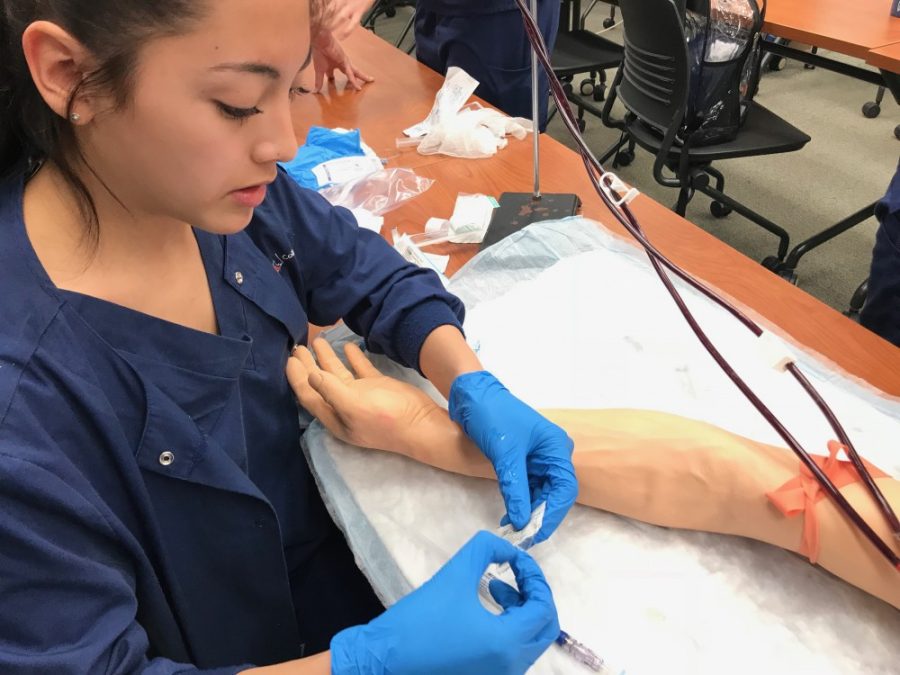Diversity is necessary in healthcare professions, according to Mary Koithan, associate dean for student support and community engagement at the University of Arizona College of Nursing.
“Patients want a nurse, physician or physical therapist that looks like them, speaks their language — someone who understands them as a whole person,” Koithan said.
This is what the Arizona Nursing Inclusive Excellence program is aiming to accomplish.
The Health Resources and Services Administration has awarded the UA College of Nursing a $1.9 million grant to increase diversity among UA nursing students.
RELATED: Combating the opioid crisis with education
Given as a part of HRSA’s Nursing Workforce Diversity Program, the grant will be used over a period of four years to fund the ANIE program, a UA initiative that seeks to correct the underrepresentation of certain populations in the nursing workforce.
The ANIE program seeks to give full-time students from Hispanic, Native American and rural backgrounds, as well as those who are first-generation college students, a number of tools to help achieve academic success.
Nursing students in the ANIE program will receive professional development, individualized mentoring, job placement and preparation for certification. Though these enrichment tools are available to all nursing students, they are mandatory for ANIE students.
Engagement and participation requirements also vary based on students’ level of collegiate experience. The ANIE program is split into three cohorts: pre-professional nursing students, Bachelor of Science in nursing students and Doctor of Nursing practice students. Participants who fulfill the program’s requirements are also eligible for a stipend.
According to Koithan, students from the four underrepresented groups that ANIE targets understand the unique barriers these disadvantaged communities face when accessing healthcare, such as a lack of access to medical professionals and medicine.
“If you’re a diabetic patient in a rural area or around the border, you may have to travel 100 miles [for healthcare] or order medications that would take two weeks to get there,” she said. “When a healthcare provider understands where you come from and understands the challenges you face in accessing healthcare, they can tailor your care to your needs.”
Koithan also described how the grant will let the UA do its part in creating a more diverse nursing workforce.
“As a land-grant institution, we have an obligation to graduate a force that reflects the community we live in,” Koithan said.
She confirmed that ANIE is aimed at students from Hispanic, Native American, first generation and rural backgrounds specifically because these groups have a sizable presence in Arizona but are underrepresented in higher education and nursing.
Koithan and Director of Student Engagement Samantha Gluski explained that because students from these groups come from less advantaged backgrounds, their prior education often hasn’t prepared them for a college curriculum.
RELATED: $2.2 million federal grant helping Arizona Center for Rural Health combat opioid epidemic
ANIE strives to rectify this by providing individual tutoring and training in study skills and time management.
“One of the things we know is that [ANIE students] face barriers to higher education,” Koithan said. “Their high school may not have adequately prepared them for the rigorous science courses needed for a nursing degree.”
Gluski added that students whose parents have a college degree are more likely to have study skills than first-generation students.
“Many times, the students who have parents who have advanced degrees are pressed by their parents [to study],” Gluski said. “For students who are first-gen, this is really a different can of worms. Students struggle with figuring out priorities. The program provides mentorship to focus on what’s most important.”
Follow Jahnavi Akella on Twitter








